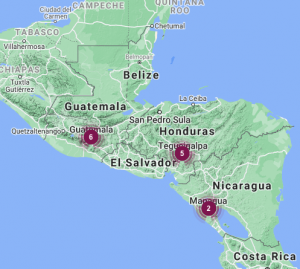By CanWaCH
A coalition advancing health, human rights and gender equality
With only 10 years left to achieve our Sustainable Development Goals (SDGs), we are faced with both sustained and varying challenges ahead of achieving these goals. Access to reliable, accurate and timely data must be a priority for supporting sustainable development and humanitarian action. It is important to assess the various existing data challenges and to think deeply about the potential for impact within the global development sector. In doing so, we look to harness the power of mutual partnerships to tackle these critical data challenges in order to improve results, facilitate shared learning and measure our collective impact.
As a coalition committed to supporting partnership, the Canadian Partnership for Women and Children’s Health (CanWaCH) focuses specifically on the impact of Canadian actors and their partners in development when it comes to advancing health, human rights and gender equality around the world. Our CanWaCH Project Explorer is an open-access tool with a wide range of data on development, humanitarian and gender equality projects worldwide that showcases Canada’s contribution to global health and gender equality by leveraging data generated and shared by the sector. It connects users with unique and timely information, as well as resources that allow them to identify and respond to data gaps, utilize and communicate data effectively to inform decisions and to improve the delivery of programming for greater impact.
 Trust, partnerships and collaborations
Trust, partnerships and collaborations
Since its launch in 2017, the Project Explorer has seen tremendous success, currently housing over 1200 projects. We believe the core of our success lies, in large part, in the contributions and encouragement of sector partners. From the onset, it was established as a platform to promote data sharing and collaboration, enhance coordination of efforts and improve decision-making in global health and development. Historically, data sharing has been and still remains a challenge. However, we were successful in getting our partners to share data with us. We devised strategies to make data-sharing processes as simple as possible by using easily accessible forms, collecting specific pieces of information separately rather than all at once (thus reducing the burden of contributing), and communicating value at all times.
With data outreach, we quickly learned that trust is an essential component to fostering data collaborations. Trust in who’s collecting data, what’s being done with the data, how the data is used, and the value of sharing their data. We ensure organizations have control over what information is shared about their work and attest to its accuracy, to properly represent their work. We maintain open and frequent communication with partners, through our memberships, working groups and engagements, and encourage forward-thinking and deliberate action towards our shared goals in achieving and measuring results around the world.
Championing local leadership
In our 2020 Global Health Impact Report, we examine the role of equitable partnerships and localization in relation to achieving the SDGs around global health and gender equality. Following a series of consultations with experts in the sector and using data from our Project Explorer, one key topic of focus was prioritizing local partners and community leadership. We’re keen to not only emphasize the importance of locally led programming but are challenged to put our words into action by ensuring local actors take the lead on the road to realizing these goals. When we talk about data collaborations, it’s important to critically reflect on how data is governed, owned and applied. Global development efforts and programming activities should be informed by local priorities, and this can only be achieved by ensuring that local actors own their data.
CanWaCH is the Canadian Partnership for Women and Children’s Health. To learn more about Canada’s impact on global health, contact CanWaCH at impact@canwach.ca.
Sign up for PANL Perspectives' free, monthly newsletter
Thursday, May 27, 2021 in Data Discoveries
Share: Twitter, Facebook



